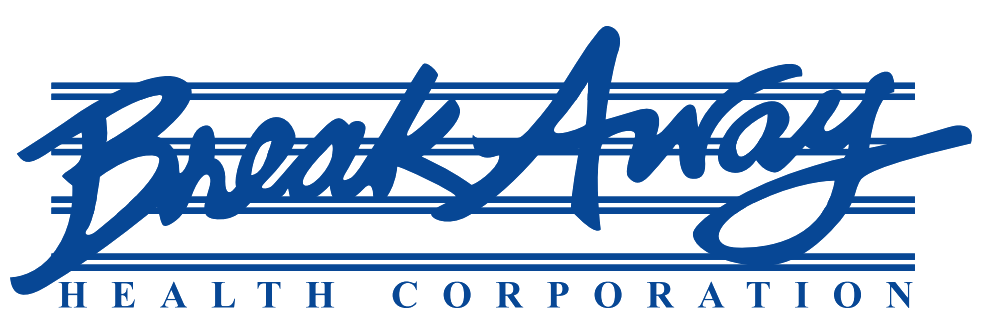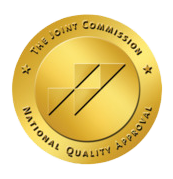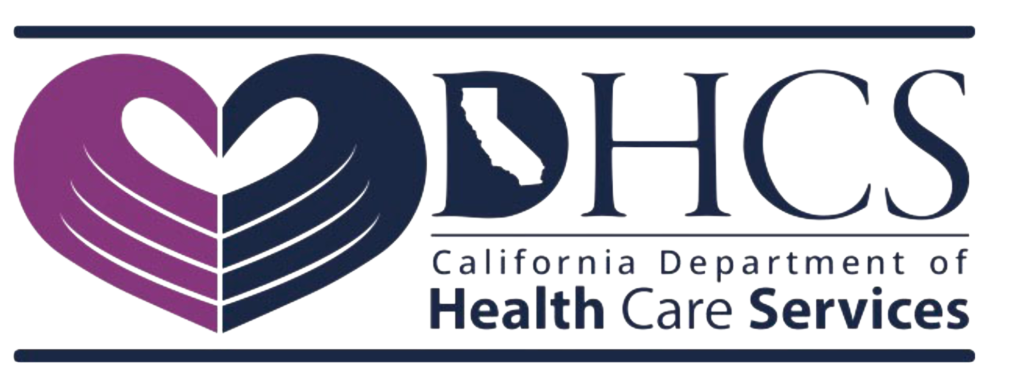The Growing Concern Around Addiction
Addiction reaches millions of lives across the United States, impacting family, workplace, and overall health. Whether the addiction is centered around alcohol, drugs, gambling, or the internet – the effect is catastrophic. As more awareness is gained on behavioral and physical addictions, access to credible information and positive resources is critical.
Here at Breakaway Health in Costa Mesa, we have faith that all people deserve to live a healthier life. You or your loved one can heal from addiction with the right support. You do not have to remain silent or do it by yourself when help is within reach.
What Is Addiction?
Addiction is a chronic illness that involves a loss of control over the use of a substance or the engagement in a behavior despite negative consequences. It alters the brain to create an intense desire and compulsive behavior that exceeds rational choice.
People who are struggling with addiction are likely to retain their habit despite whether it’s impacting their health, relationships, finances, or responsibilities. Addiction is not weakness or bad judgment but is often the product of complex biological, psychological, and social factors.
What Causes Addiction?
Although addiction is very common and can be treated, there is no simple answer as to what causes addiction. A combination of elements can contribute, such as:
Biological Factors
Genetics can be a major factor in increased vulnerability to addiction. For the majority of individuals, the fight against addiction is really not so much of a decision because their genetics might include a trait that helps them to withstand a specific substance or activity. Research shows that up to 50% of people’s vulnerability to an addiction can be linked to genetics. If he or she hails from an addicted family, then he or she is more likely to inherit brain chemistry that is easier to react with alcohol or drugs. With the increased sensitivity, the feeling of being on them becomes more pleasant, and thereby the likelihood of continuous use leading to eventual dependency becomes higher. These genetic traits don’t predetermine an individual to be addicted, but they might make it a bit more of a hill to climb for the individual trying to avoid or escape it.
Mental Health Conditions
Addiction is also found to be paired with mental disorders like depression, anxiety, and PTSD in a cycle that is difficult to break. Individuals will resort to drugs, alcohol, or compulsive behavior as a means of solving emotional trauma. The behavior or substance would succeed for some time but ultimately worsen the initial mental health problem, leading to further dependence. This dual effect, referred to as co-occurring disorders or dual diagnosis, requires treatment of addiction and mental illnesses concurrently for the best outcomes.
Environmental Influences
Trauma, abuse, peer pressure, and upbringing can all contribute to the risk for addiction in a person. Individuals who have experienced physical or emotional abuse may turn to substances or behaviors as a way to cope with unresolved pain. Childhood neglect or lack of emotional support can disrupt healthy emotional development, leaving people more vulnerable to seeking comfort through addictive behaviors. Peer pressure, especially during adolescence, can normalize harmful substance use. Furthermore, growing up in a household where addiction is present can model destructive patterns and increase emotional stress, both of which heighten the likelihood of developing addiction.
Early Exposure
When young individuals start using substances, they’re doing so at a time when their brains are still growing and learning how to control impulses and develop healthy decision making habits. The teenage brain is incredibly impressionable, and introducing substances during these critical years can change the way it develops. This can lead to stronger attachment to substances and make it harder for them to make healthy decisions later on. Habits formed during these early years tend to stick, which means the risk of addiction in adulthood rises dramatically. What may begin as experimentation or peer-pressured behavior can quickly grow into an addiction that could be impossible to control.
What Are the Symptoms of Addiction?
Recognizing addiction symptoms early can make a difference. Common signs include:
- Obsessive thoughts about a substance or activity
- Losing interest in other parts of life
- Withdrawal from friends or family
- Changes in sleep or eating habits
- Hiding use or lying about behaviors
- Continued use despite negative effects
Symptoms vary by individual and type of addiction but usually reflect a loss of control and increasing dependence. Some people may experience intense cravings and find themselves unable to stop no matter how much they desperately want to. Others might notice a gradual shift such as missing work, withdrawing from social events, or lying to loved ones, all to continue their addiction.
Emotional symptoms, such as anxiety, guilt, or irritability, often accompany the physical and behavioral changes. The longer the addiction persists, the more it can consume someone’s daily life and healthy relationships with a constant need for the substance or behavior.
What Are the Different Types of Addiction?
Addiction comes in many forms. While drug and alcohol addiction are widely discussed, behavioral addictions are increasingly recognized for their damaging effects.
Alcohol Addiction
This type involves both physical and emotional dependence on alcohol, making it difficult for individuals to function without it. Over time, consistent drinking can lead to serious damage to the liver and increase the risk of heart disease, high blood pressure, and stroke. Alcohol also significantly impacts mental health, often worsening anxiety and depression. Individuals may find themselves drinking to cope with stress, only to find that their overall well-being continues to decline. Relationships may suffer, responsibilities can be neglected, and personal goals may fall by the wayside as alcohol takes a central role in daily life.
Drug Addiction
This addiction includes both prescription medications and illegal substances like opioids, cocaine, methamphetamine, and benzodiazepines. Drug addiction can affect every area of a person’s life, including their physical and mental health. The brain becomes rewired to prioritize drug use over basic needs and responsibilities. As tolerance builds, people often find themselves using larger amounts just to feel normal, which increases the risk of overdose and long-term health issues. Drug addiction often requires medical detox to safely manage withdrawal symptoms and reduce health risks. After detox, a structured rehab program, incorporating therapy, education, and support, helps individuals rebuild their lives and regain control.
Gambling Addiction
The thrill of gambling can become irresistible, offering a sense of excitement and escape that keeps individuals coming back for more. Over time, casual bets can spiral into uncontrollable urges to gamble despite growing consequences. People with gambling addiction may lie to loved ones, borrow or steal money, and risk their financial stability in pursuit of their next big payout. This behavior can result in mounting debt, job loss, and long term financial ruin. The emotional toll is equally severe, entailing shame, anxiety, and despair are common, yet the compulsion to gamble can override even the most serious repercussions.
Technology Addiction
An excessive amount of screen time, whether phone usage, gaming, or social media, can lead one to neglect work, family, and social life. What starts as recreation can become a frantic need to be connected, avoid stress, or escape the problems of daily life. Hours of gaming or scrolling can quickly replace healthy social life, physical activity, and sleep. It can reduce productivity in the long term and cause mental health issues such as anxiety, solitude, and depression. Technology addiction is not usually brought into account, but its impact can be just as interfering as addictions to substances.
Understanding the type of addiction is vital for determining the best course of treatment. Different addictions require different approaches, yet they share core symptoms of compulsion and dependency.
What Is Addiction Treatment?
Addiction treatment is a process that helps individuals stop using substances or engaging in addictive behaviors and rebuild a healthy life. Treatment works best when it’s structured, long-term, and is personalized to the individual who is seeking treatment.
Detoxification
Detox is often the first critical step in recovery, helping individuals stabilize physically so they can begin addressing the root cause of addiction through further treatment. For substance addiction, medical detox may be necessary to safely remove toxins from the body and manage withdrawal symptoms, which can range from mild discomfort to severe and potentially life-threatening conditions. This process is typically conducted in a supervised environment where medical professionals can monitor vital signs and provide medications to ease symptoms like nausea, anxiety, insomnia, and seizures.
Therapy
Counseling, both one-on-one and in group settings, plays a vital role in addiction treatment by offering a safe space to explore personal struggles and emotional pain. In individual therapy, clients can work closely with a trained counselor to uncover underlying causes of their addiction, such as trauma or stress, and develop personalized strategies for managing triggers. Group therapy provides the added benefit of shared experience, connecting individuals with others who face similar challenges helps reduce feelings of isolation and build mutual support.
Medication
In some cases, medications can play a key role in addiction treatment by helping to ease cravings, stabilize mood, and reduce the intensity of withdrawal symptoms. These may include medications like methadone or buprenorphine for opioid addiction, naltrexone for alcohol dependence, or antidepressants for individuals with co-occurring mental health conditions. By addressing both the physical and psychological aspects of addiction, medications can make recovery more manageable and improve a person’s ability to fully engage in therapy and support systems. Although medications are not a cure for addiction, they are valuable tools that support long-term recovery when used as part of a comprehensive treatment plan.
Support Groups
Peer support, whether through 12-step recovery programs or community support groups, can be a very powerful part of recovery. These groups offer a setting where individuals are able to freely share their experiences, relapses, and successes without criticism. Developing a connection with others who fully understand what they’re going through can alleviate feelings of isolation and provide hope for recovery. The built-in accountability and structure of peer groups also function to maintain individuals’ attention to recovery goals and establish a network of support extending past the end of formal treatment.
What Is the Goal of Addiction Treatment?
The main objective is to help someone achieve and maintain sobriety while improving their overall well-being.
Goals include:
- Ending destructive behaviors
- Rebuilding relationships
- Improving physical and mental health
- Increasing self-awareness
- Building a meaningful, substance-free life
- Rehabilitating healthy mindsets
The aim isn’t just to stop the behavior but it’s to empower individuals to rebuild their confidence, reconnect with their values, and take meaningful steps toward a healthier life. Treatment focuses on giving people the tools and support they need to feel capable and in control of their future again.
Is Addiction a Disease or Lack of Will Power?
Research overwhelmingly supports the fact that addiction is a disease that affects brain chemistry, not a reflection of someone’s character or effort.
Just like diabetes or heart disease, addiction can be managed with proper care. Blaming someone for not having enough will power adds shame and discourages them from seeking help.
Take the First Step Toward Recovery
Addiction can affect anyone. It’s not about weakness, it’s a disease that deserves compassion and treatment. At Breakaway Health in Costa Mesa, we offer proven, caring support for people struggling with substance abuse addictions and mental health disorders.
If you or someone you care about is dealing with addiction, Call Breakaway Health Today! Help is just one call away.
Frequently Asked Questions
1. What is addiction?
Addiction is a chronic condition where a person compulsively uses a substance or engages in behavior despite harmful consequences.
2. What causes addiction?
Addiction causes include genetics, mental health disorders, environmental factors, and early exposure to substances or behaviors.
3. What are the symptoms of addiction?
Symptoms vary but often include cravings, loss of control, neglect of responsibilities, and continued use despite consequences.
4. What are the different types of addiction?
Addiction types include alcohol addiction, drug addiction, gambling addiction, and technology addiction.
5. What is addiction treatment?
Addiction treatment involves detox, therapy, support groups, and sometimes medication to help individuals achieve and maintain sobriety.







